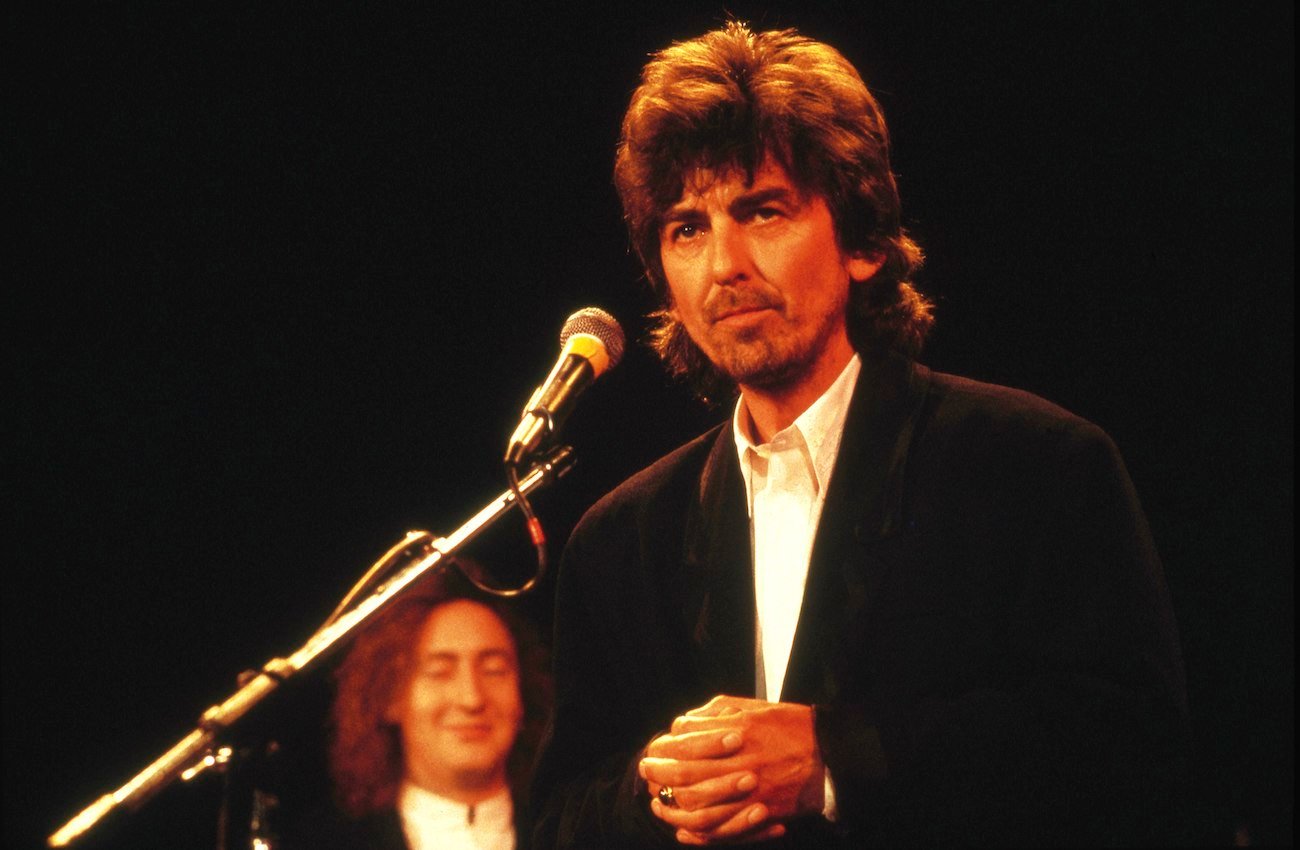
George Harrison Said It Was Hard Making Films for American Audiences
George Harrison started making films in the late 1970s “purely by accident.” His friends in Monty Python lost their producer for Life of Brian. Since George wanted to see the film, he financially backed it. Suddenly, HandMade Films was born, ushering George into the film business with tons of scripts coming his way.
The production company made films no one else was willing to take, most of which were British. Until HandMade Films eventually branched out into America.

George Harrison didn’t want HandMade Films to turn American
The former Beatle’s official entrance into the film business is controversial. If it were up to George, he wouldn’t have picked up many more projects after Life of Brian. However, his business manager, Denis O’Brien, got a “taste” for it and convinced George to continue the business.
Fortunately for George, he didn’t have to devote much time to HandMade Films. Otherwise, he would’ve panicked and bailed. George told Film Comment that he also would’ve bailed if HandMade Films became a big American company.
George wanted to keep HandMade Films a small British company. However, it soon made its way over to America. They set up an office in New York and released their first American film, Five Corners, in 1987. Then, suddenly, they picked up seven more American films.
“That isn’t my idea, but I think it could be Denis’s; he’s interested in broadening the base,” George said of expanding across the pond. “I personally would not like to see HandMade Films turn into an American company in New York or Los Angeles, I like it being in a nice little office in England.
“… I like to have American actors and directors. We’re not closed to anything, really. But I wouldn’t like us to become some big swanky American company. At that point, I’d probably bail out.”
George said it was difficult making films for American audiences
Another reason George didn’t like going over to the U.S. was that making films for American audiences was hard. But Film Comment asked, “Isn’t the American market as important to the film business as it is to the recording industry?
“Of course,” George replied. “To really make it, you have to have some success in America—in film and in records. You can sell all you like in England and France and Switzerland. But you need a big response in the American market to pay the bills, to pay back the money and make the thing work.
“The turning point for our company came in the last year or two, when some of the films we made strictly as slow-budget projects got accepted in America. Mona Lisa was one. Withnail and I was another—which came as something of a shock. I really enjoy the film personally, but thought there wasn’t a snowball’s chance of the American people getting this kind of humor. The jokes seem very English to me. I’m glad to say I was wrong about that.
“We’ve always been told that Americans want things to happen crash! bang! wallop! and want a film to be paced quickly. You get so terrified when there’s actually dialogue going on and people have to use their brains and listen.
“We’ve tried to give people credit for wanting to see a film with some kind of plot, dialogue, depth, and were pleasantly surprised that there are Americans who don’t mind working a bit—particularly given all the competition these days.
“Someone told me that 170 films were released between last August and Christmas in America alone. A few years ago, you could put a film in a theater in the U.S. and let it build on word of mouth. Now if you put a film out on Friday and it hasn’t grossed a certain amount of money by Saturday night, it’s gone. It’s ruthless—even more ruthless than the record business.”
The former Beatle only wanted to make small comedies
George didn’t want HandMade Films to get carried away. To cut down, he wanted to stick with comedies only.
“The logistics of it all makes it very difficult to get all those movies going at the same time,” George said. “These plates you’re trying to spin are big, heavy things, you know. It’s good that he’s [O’Brien] going for it in some ways, though.
“I would have been content just to do Life of Brian and Time Bandits—much happier just doing comedies. But, then, if I was in charge of this company I don’t think it would have gone on as long or gone as far, really. I probably would have encouraged us to have made even crazier films than we’ve made.
“I know I wouldn’t have been as adventurous in some areas. But at the same time, I don’t want to get too adventurous. I like to be safe and sure, you know.”
Thankfully, George didn’t produce too many more films to make HandMade Films out of control. Eventually, he left it all behind to focus more on music again. That was his true love.


